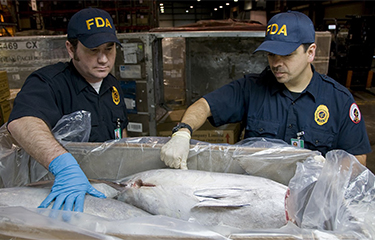Scientists pen letter to Congress urging SIMP expansion

More than 100 scientists signed a letter sent to Congress on Monday, 13 December, urging lawmakers to ensure that all seafood products imported into the United States are caught using legal means.
Illegal, unreported, and unregulated (IUU) fishing is often associated with human trafficking and other human rights abuses, and distant-water fishing forces vessel owners and operators to extend trips to “achieve a sizeable catch,” the university professors, research fellows, and scientists claimed in the two-page letter. In order to get that kind of catch, some operators will use forced labor and harvest fishing stocks beyond allowable limits, they alleged.
One way the U.S. can stop those exploitative practices is by expanding the Seafood Import Monitoring Program, which covers 13 species, the scientists said. Their letter calls for the Biden administration to lead against illegal fishing and human rights violations by expanding an initiative calling for documentation on all seafood sold in the U.S. and requiring traceability “from boat or farm to plate.”
“Although a step forward for combating illegal fishing and seafood fraud in imports, SIMP excludes many species that account for approximately 60 percent of the volume of imports and does not require traceability from the point of import to the final point of sale, resulting in significant gaps in SIMP’s traceability requirements,” the letter states.
The scientists also called for all U.S. operators to use automatic identification systems (AIS) for other purposes besides collision prevention.
“By expanding transparency of U.S. fishing vessels, the U.S. can demand transparency as a condition of import, allowing the government to identify the high-risk shipments for increased inspections, audits, and enforcement actions,” the letter states. “As U.S. vessels can turn off AIS tracking at will, mandatory AIS requirements are a necessary condition for traceability and transparency in the global seafood supply chain.”
The SIMP expansion is a cornerstone of H.R. 3075, the Illegal Fishing and Forced Labor Prevention Act, a bipartisan bill proposed by U.S. Rep. Jared Huffman (D-California) and U.S. Rep. Garret Graves (R-Louisiana).
A large group of U.S. fishing stakeholders opposed the Huffman-Graves bill because it initially required AIS on all vessels that are at least 50 feet in length, claiming it would force redundancy as other systems in place offer tracking capabilities. Requiring AIS would increase costs and allow competitors to learn their locations, they said.
In October, the House Natural Resources Committee approved an amended version of H.R. 3075 that make the AIS requirement for vessels that are 65 feet or longer. Owners of smaller vessels could still buy AIS for their boats through a subsidy program in the bill, Huffman said.
Among the signatories on the letter is Daniel Pauly, an Oceana board member. The letter cites a 2019 report from Oceana that determined 20 percent of seafood tested at American restaurants and grocery stores was mislabeled.
The conservation group said in a statement it was grateful for the scientists’ support in combating human rights violations.
“The U.S. must take action to ensure all seafood sold in the United States is safe, legally caught, responsibly sourced, and honestly labeled by expanding traceability of seafood and transparency at sea,” Oceana Deputy Vice President for U.S. Campaigns Beth Lowell said in a statement. “By collecting the right information about seafood, the government can more effectively screen imports and keep illicit products out of the U.S. market.”
Photo courtesy of U.S. Food and Drug Administration






Share